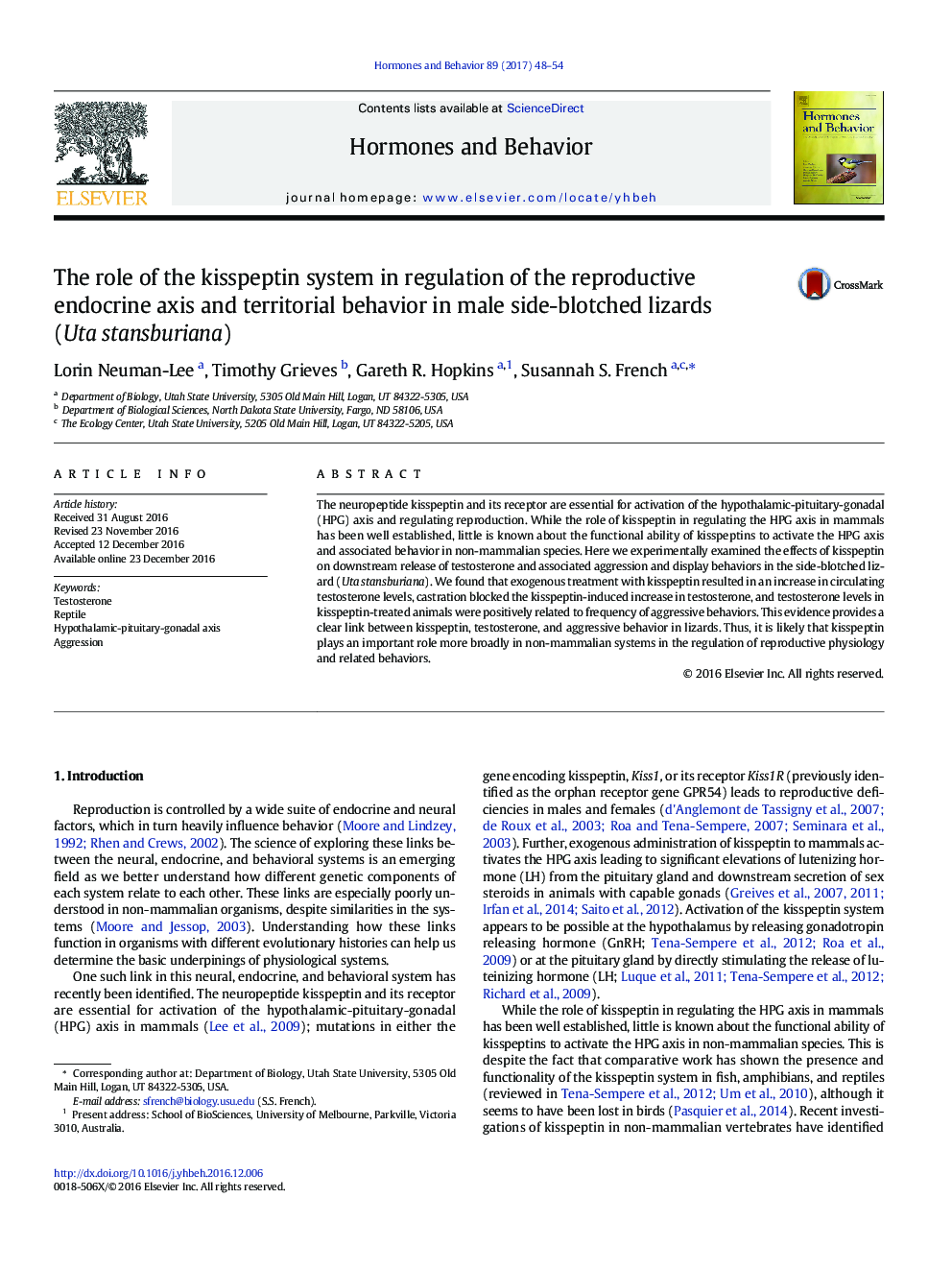| Article ID | Journal | Published Year | Pages | File Type |
|---|---|---|---|---|
| 4931176 | Hormones and Behavior | 2017 | 7 Pages |
Abstract
The neuropeptide kisspeptin and its receptor are essential for activation of the hypothalamic-pituitary-gonadal (HPG) axis and regulating reproduction. While the role of kisspeptin in regulating the HPG axis in mammals has been well established, little is known about the functional ability of kisspeptins to activate the HPG axis and associated behavior in non-mammalian species. Here we experimentally examined the effects of kisspeptin on downstream release of testosterone and associated aggression and display behaviors in the side-blotched lizard (Uta stansburiana). We found that exogenous treatment with kisspeptin resulted in an increase in circulating testosterone levels, castration blocked the kisspeptin-induced increase in testosterone, and testosterone levels in kisspeptin-treated animals were positively related to frequency of aggressive behaviors. This evidence provides a clear link between kisspeptin, testosterone, and aggressive behavior in lizards. Thus, it is likely that kisspeptin plays an important role more broadly in non-mammalian systems in the regulation of reproductive physiology and related behaviors.
Related Topics
Life Sciences
Biochemistry, Genetics and Molecular Biology
Endocrinology
Authors
Lorin Neuman-Lee, Timothy Greives, Gareth R. Hopkins, Susannah S. French,
